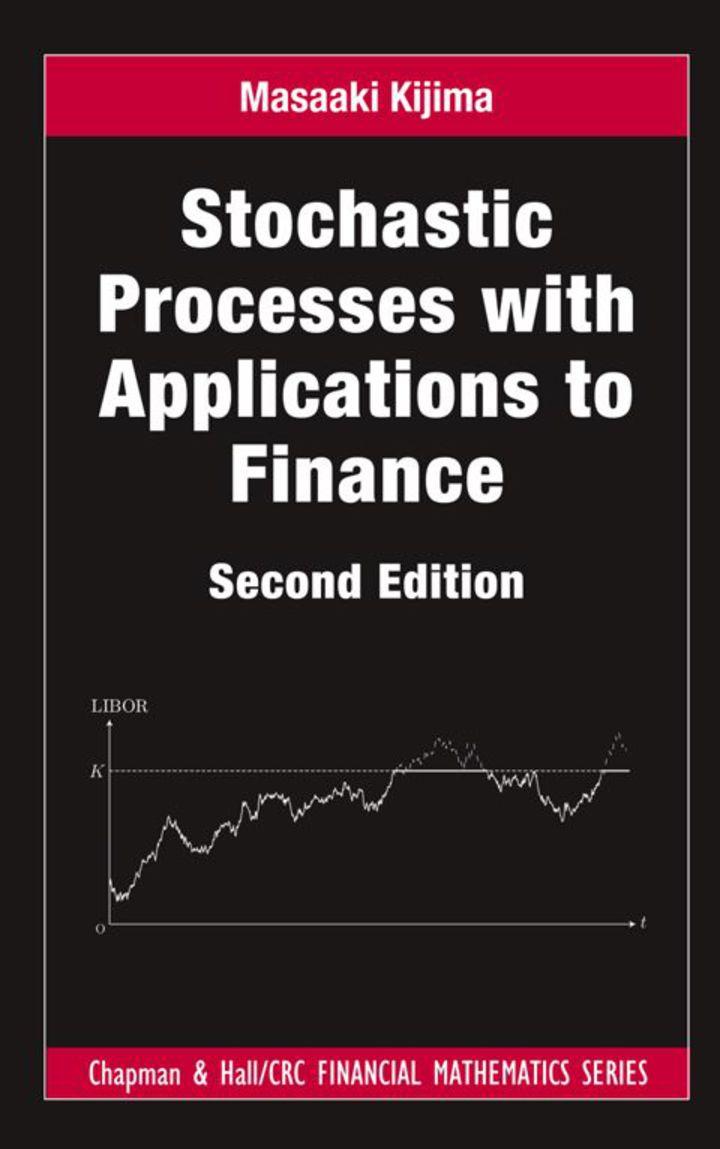Exercise 1.4 Suppose that a function f(x) is continuous on [a, b] and differentiable in (a, b).
Question:
Exercise 1.4 Suppose that a function f(x) is continuous on [a, b] and differentiable in
(a, b). Prove the following.
differentiable in
(a, b). Prove the following.
(1) If f′(x) = 0 for a < x < b then f(x) is constant.
(2) If f′(x) = g′(x) for a < x < b then f(x) and g(x) differ by a constant, where g(x) is assumed to be continuous on [a, b] and differentiable in
(a, b).
(3) If f′(x) ≥ 0 for a < x < b then f(x1) ≤ f(x2) for x1 < x2.
(4) If f′(x) > 0 for a < x < b then f(x1) < f(x2) for x1 < x2.
(5) If |f′(x)| ≤ M for a < x < b then f(x) satisfies the Lipschitz condition:
|f(x1) − f(x2)| ≤ M|x1 − x2|, a < x1, x2 < b.
Fantastic news! We've Found the answer you've been seeking!
Step by Step Answer:
Related Book For 

Stochastic Processes With Applications To Finance
ISBN: 9781439884829
2nd Edition
Authors: Masaaki Kijima
Question Posted:





